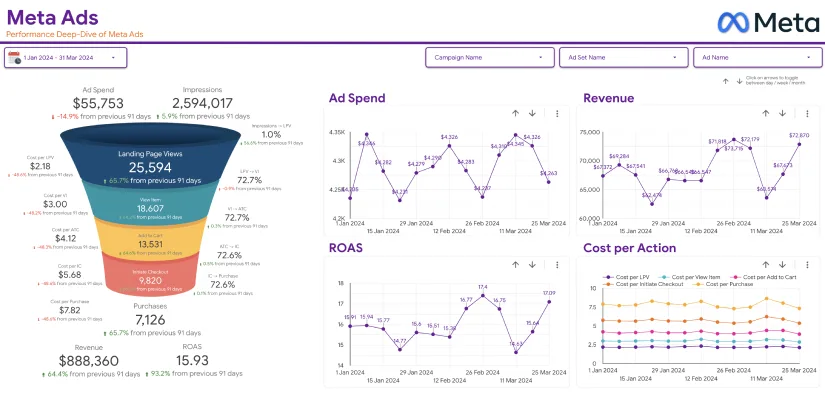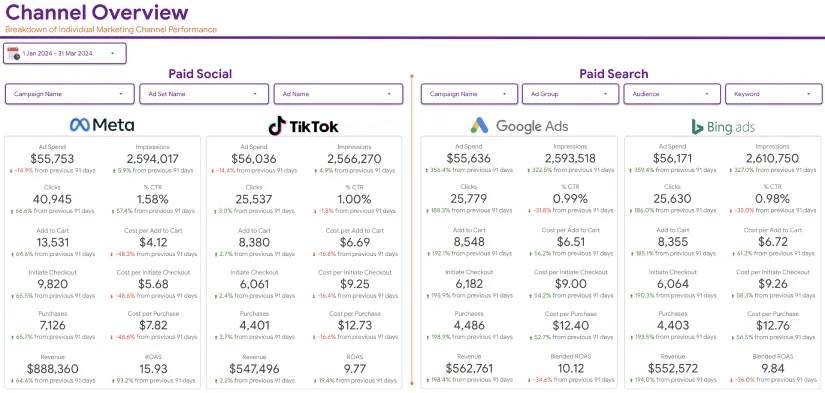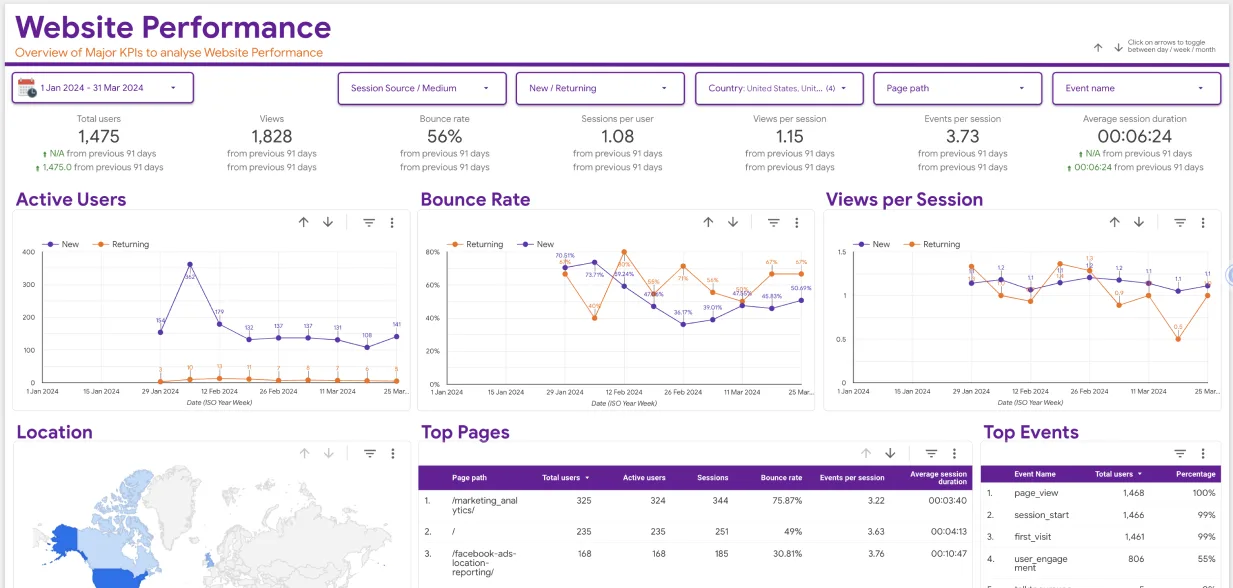In the fast-paced world of e-commerce, email marketing remains one of the most powerful tools for driving customer engagement and maximizing revenue. However, not all email marketing platforms are created equal. The choice of platform can greatly impact your marketing success, and selecting the right tool can be the difference between effective campaigns and lackluster results.
One platform that consistently rises above its competitors is Klaviyo. Renowned for its sophisticated segmentation, intuitive interface, and deep integrations, Klaviyo has become the go-to email marketing solution for e-commerce businesses. In this post, we’ll explore why the Klaviyo dashboard outshines its competitors and is regarded as the best tool for e-commerce email marketing.
We’ll compare the Klaviyo dashboard to some of its leading competitors, including Mailchimp, ActiveCampaign, and Omnisend, and highlight the key features that make it a standout option for e-commerce brands.
Why Email Marketing Matters for E-commerce
Before diving into the details of why the Klaviyo dashboard outshines its competitors, it’s essential to understand why email marketing is crucial for e-commerce businesses:
- High ROI: Email marketing has one of the highest returns on investment (ROI) of any digital marketing channel, with studies showing an average ROI of $42 for every $1 spent.
- Personalization: Unlike other marketing channels, email lets brands personalize messages based on customer behavior, preferences, and demographics.
- Customer Retention: Email helps brands nurture relationships, driving repeat business and brand loyalty.
- Automated Engagement: Automated email campaigns allow businesses to engage with customers immediately, from welcome sequences to abandoned cart reminders.
Given the importance of email marketing, choosing the right platform to manage and optimize these campaigns is critical for e-commerce businesses.
What is the Klaviyo Dashboard?
The Klaviyo dashboard is the central hub where businesses manage all aspects of their email marketing campaigns. From creating and scheduling emails to analyzing campaign performance, the dashboard offers an intuitive, user-friendly interface that allows marketers to stay on top of their efforts without technical complexity.
Klaviyo is built specifically for e-commerce, integrating seamlessly with major e-commerce platforms like Shopify, WooCommerce, and BigCommerce. Its dashboard gives businesses detailed insights into customer behavior, revenue attribution, and engagement metrics, allowing for data-driven decision-making.
But how does the Klaviyo dashboard compare to other leading email marketing platforms? Let’s dive into the specifics.
Klaviyo Dashboard vs. Mailchimp
Mailchimp is one of the most well-known email marketing platforms, but when it comes to serving e-commerce businesses, it falls short compared to Klaviyo. Here’s why:
1. E-commerce Integrations
While Mailchimp offers basic integrations with popular platforms, the Klaviyo dashboard provides deeper, more advanced integrations with e-commerce platforms like Shopify, BigCommerce, and Magento. This allows businesses to directly pull in granular customer data, such as purchase history, browsing behavior, and product preferences, into the dashboard.
With this data at your fingertips, Klaviyo enables businesses to create highly personalized email campaigns, whereas Mailchimp’s e-commerce capabilities are limited.
2. Segmentation and Targeting
Segmenting and targeting your audience based on specific criteria is crucial in e-commerce. Klaviyo offers powerful segmentation tools that allow you to drill down into customer data and create hyper-targeted campaigns based on behavior, purchase history, engagement, and more.
Mailchimp offers segmentation but needs the depth and precision of Klaviyo. With the Klaviyo dashboard, you can easily create segments like “customers who have purchased in the last 30 days but haven’t returned” or “subscribers who have abandoned their carts in the last 24 hours.” This level of granularity is key for increasing conversions and maximizing revenue.
3. Email Automation
Why It Matters: Backlinks remain one of the strongest ranking factors in SEO. A high-quality backlink profile can significantly improve your domain authority, boosting rankings.
4. Conversion Rate from Organic Traffic
Both platforms offer automation, but Klaviyo’s workflow is far more advanced. The Klaviyo dashboard allows you to build complex automation sequences that react to real-time customer actions, such as product views, cart abandonment, and post-purchase follow-ups.
While functional, Mailchimp’s automation features lack the depth and customization options found in Klaviyo. For instance, Klaviyo’s “Browse Abandonment” feature allows you to automatically send an email to customers who have viewed a product but didn’t add it to their cart—something Mailchimp struggles to replicate.
4. Reporting and Analytics
The Klaviyo dashboard excels at reporting. It offers in-depth analytics that tie email campaigns directly to revenue, allowing e-commerce businesses to measure the ROI of their marketing efforts. Klaviyo also tracks customer lifetime value (CLV), purchase frequency, and average order value (AOV)—essential metrics for e-commerce growth.
Mailchimp offers basic reporting, but it doesn’t provide the same level of e-commerce-specific insights. Klaviyo’s detailed, real-time reports make it easier to track the success of your campaigns and make data-driven decisions.
Klaviyo Dashboard vs. ActiveCampaign

ActiveCampaign is another popular email marketing platform known for its CRM capabilities. While it’s a solid choice for businesses focused on customer relationship management, it falls short in e-commerce compared to Klaviyo.
1. E-commerce Focus
While ActiveCampaign offers email marketing and CRM features, it wasn’t designed for e-commerce. Klaviyo, on the other hand, was built specifically for e-commerce businesses, which means its features are tailored to help online stores drive sales and engagement.
The Klaviyo dashboard integrates directly with e-commerce platforms and offers advanced features like dynamic product recommendations, email flows triggered by customer actions, and detailed sales tracking. ActiveCampaign needs this e-commerce focus, making it a less effective tool for online stores.
2. Ease of Use
ActiveCampaign’s interface can be overwhelming for users who aren’t familiar with CRMs. Klaviyo’s dashboard, by contrast, is user-friendly and intuitive, even for those with minimal technical experience. It provides a clean, streamlined interface that makes navigating through campaigns, reports, and automation flows easy.
3. Email Personalization
While both platforms offer email personalization, Klaviyo takes it to the next level with its data-driven personalization features. The Klaviyo dashboard allows you to dynamically insert product recommendations, tailor subject lines, and adjust messaging based on real-time customer data.
ActiveCampaign offers basic personalization options but doesn’t offer the same level of integration with e-commerce data. Klaviyo’s ability to pull in specific customer insights and adjust messaging accordingly makes it a far more effective tool for increasing engagement and conversions in e-commerce.
Klaviyo Dashboard vs. Omnisend
Omnisend is another email marketing platform focused on e-commerce, but Klaviyo maintains a competitive edge even here.
1. Segmentation and Personalization
Omnisend and Klaviyo excel in segmentation and personalization, but the Klaviyo dashboard offers more granular control over customer data. Klaviyo allows you to segment your audience based on various factors, including behavioral data, transactional data, and engagement history.
Omnisend offers strong segmentation features but lacks the same level of deep data integration that Klaviyo provides. This means that with Klaviyo, you can target your customers more precisely, leading to more personalized campaigns and higher conversion rates.
2. Advanced Automation
Omnisend’s automation workflows are robust, but Klaviyo takes automation further. Klaviyo’s automation builder is incredibly flexible, allowing businesses to create highly customized workflows based on specific customer actions.
For instance, with the Klaviyo dashboard, you can set up multi-step workflows that include conditional logic, such as sending a different follow-up email depending on whether a customer opens the first message or purchases. This detailed automation can significantly boost engagement and revenue, making Klaviyo a more powerful tool for e-commerce automation.
3. A/B Testing
A/B testing is crucial for optimizing email marketing campaigns, and Klaviyo excels in this area. The Klaviyo dashboard makes testing different email variations, subject lines, and content blocks easy to determine what resonates most with your audience.
Omnisend also offers A/B testing, but it doesn’t offer the same level of depth and flexibility as Klaviyo. With Klaviyo, you can test multiple variables within the same campaign, allowing for more data-driven optimization.
Why Klaviyo Stands Out
When it comes to e-commerce email marketing, the Klaviyo dashboard stands out from its competitors for several key reasons:
- E-commerce Focus: Klaviyo is built specifically for e-commerce, with features designed to help online stores grow their sales and engagement.
- Advanced Segmentation: Klaviyo offers powerful segmentation tools that allow businesses to target their audience precisely, leading to more effective campaigns.
- Deep Integrations: Klaviyo’s deep integrations with platforms like Shopify and WooCommerce allow businesses to pull in valuable customer data, which can be used to create highly personalized campaigns.
- Revenue Attribution: The Klaviyo dashboard offers detailed reporting that ties email campaigns directly to revenue, making it easy for businesses to measure their marketing ROI.
- Automation: Klaviyo’s advanced automation features allow businesses to set up complex workflows that react to real-time customer behavior, driving engagement and conversions.
Conclusion
For e-commerce businesses seeking to maximize the impact of their email marketing, Klaviyo is the clear winner. Its e-commerce-specific features, powerful segmentation, deep data integration, and advanced automation set it apart from competitors like Mailchimp, ActiveCampaign, and Omnisend. The Klaviyo dashboard is user-friendly and packed with robust tools designed to drive higher engagement, conversions, and, ultimately, revenue.
What distinguishes Klaviyo from the rest is its ability to harness customer data for personalized marketing at scale. Whether you’re a small online shop or an enterprise-level store, Klaviyo’s intuitive interface and dynamic features can help your business thrive in the competitive e-commerce landscape. When you need an email marketing tool that delivers precise targeting, deep insights, and real results, Klaviyo is the best choice.
At Eaglytics, we believe in leveraging the best tools for e-commerce growth, and Klaviyo is the ultimate email marketing platform.






